So What Happened?
Over twenty years ago, Dungeons & Dragons third edition (D&D3e) was released. The owning company, Wizards of the Coast, released three other related things around that time: the System Reference Document (SRD), the Open Game License (OGL), and the d20 System Trademark License.
- The SRD is a series of files that included all of the material from the new D&D3e that Wizards of the Coast considered open for use by third parties.
- The OGL is a legal document that spelled out the rules and restrictions for using the material in the SRD (e.g., this legal document was to be included in its entirety within any and all material that used the OGL, anyone who used the SRD and the OGL would need to release their new material in the same way for others to use). It was not long before some minor updates to this resulted in the OGL v1.0a (we will just call this the OGL from now on).
- The d20 System Trademark License was a legal document that spelled out the rules and restrictions for using a stylized d20 logo on your material to announce to the world that what you were selling was compatible with the d20 System (i.e., D&D3e).
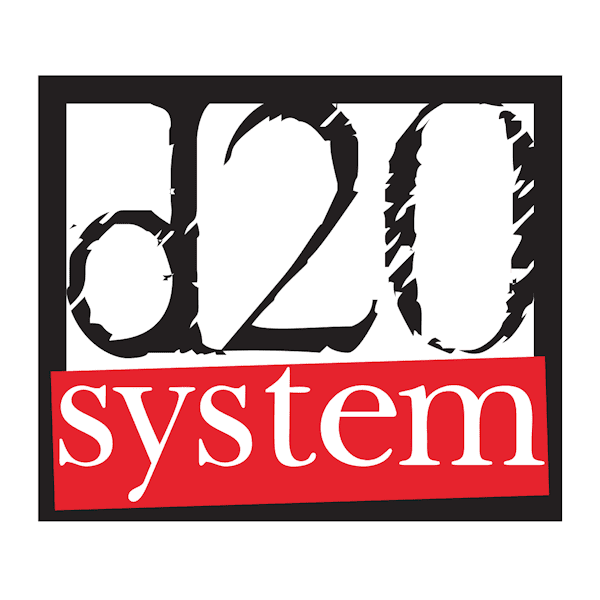
This was a drastic shift. Back in the 1980s, when Tactical Studies Rules (TSR) had ownership of Dungeons & Dragons, they were well known for their litigiousness. There is an old joke from the time that asks what TSR stands for (the answer: They Sue Regularly).
The OGL and the d20 System Trademark License launched a cottage industry of companies that wrote and published material that drove the sale of D&D3e core books. D&D3e was a success. Things moved along with an update to the core books (and the SRD, called D&D3.5e).
When D&D4e came out, it had its own SRD (obviously) and an updated, somewhat different license called the Game System License (GSL) that replaced the OGL. Many publishers felt that this was more restrictive and caused some issues. Still, it was used quite extensively. This edition of the game was not as popular, however. Another publisher, Piazo (using the D&D3.5e SRD and the OGL as their baseline), created a competing game, Pathfinder, which managed to eclipse the sales of D&D4e.
D&D5e was released (again, with a new SRD) with a return to the OGL. Wizards of the Coast and Dungeons & Dragons were back on top. Wizards of the Coast appeared to be continuing its embrace of the open gaming concept as they expanded things onto a storefront called the Dungeon Masters Guild. By keeping their products here, and allowing Wizards of the Coast to take a 50% cut of sales, third parties were given the ability to use protected intellectual property such as the various settings published for Dungeons & Dragons.
When the next edition of Dungeons & Dragons was announced, Wizards of the Coast first indicated that the game was not going to be the Sixth Edition. The numbering system was to be dropped, and the Dungeons & Dragons rules were going to a living document, allowed to evolve over time. They called it One D&D. The events that followed were chaotic and fast.
In the last two months of 2022, an update to the OGL, called OGL v1.1, was leaked. This created a firestorm in the open gaming community. The scope and nature of those events is not why this article exists. If you would like to read about that, you can check out any of the following articles that cover it in far more detail that this article dares to.
- Dungeons & Dragons’ New License Tightens Its Grip on Competition (Gizmodo)
- What is D&D OGL 1.1? WoTC Open Game License leak explained (Dexerto)
- What Is the OGL 1.1 Leak? The D&D Controversy Explained (Shortform)
- D&D’s Community Is Up In Arms Over a Controversial Change (Inverse)
- OGL 1.1 Megathread (Reddit)
- And so on…
In the end, the powers that be decided (were forced?) to drop the OGL v1.1 completely. The new edition of Dungeons & Dragons will be released under Creative Commons–a licensing structure not owned by, and therefore cannot be changed by, Wizards of the Coast or Hasbro. This history is here so that we can discuss two things.
#1. Is All This Necessary?
Game mechanics are an interesting exception to the normal rules and laws that govern copyright. The mechanics of a game cannot be copyrighted. What can be copyrighted is the artistic expression of those mechanics.
The artistic expression includes (but is not limited to) the imagery, prose, and layout. What this means, effectively, is what the OGL and Creative Commons licensing do is grant companies and individuals the right to use elements of the artistic expression of the material owned by the copyright holder. The d20 System Trademark license allowed those creators to put a mark on their work that informed the consumer that this product was compatible with the rules used in Dungeons & Dragons.
If, prior to the release of D&D3e and the open licensing, an individual wanted to make a clone of Dungeons & Dragons (or a product compatible with it), they could. From a legal standpoint, there was nothing stopping them. What the law did prevent them from using was the artistic expression of the material, or to declare compatibility. Even so, a lot of this remains murky territory.
Consider the case of Mayfair Games and their line of Role Aids supplements. In 1982, Mayfair Games began this line of supplements under legal guidance that suggested they could use some of the material (including trademarks) owned by TSR as long as they were very careful about how they proceeded. The books produced indicated they were compatible with Dungeons & Dragons, indicated who held that trademark, and that its use was not approved.
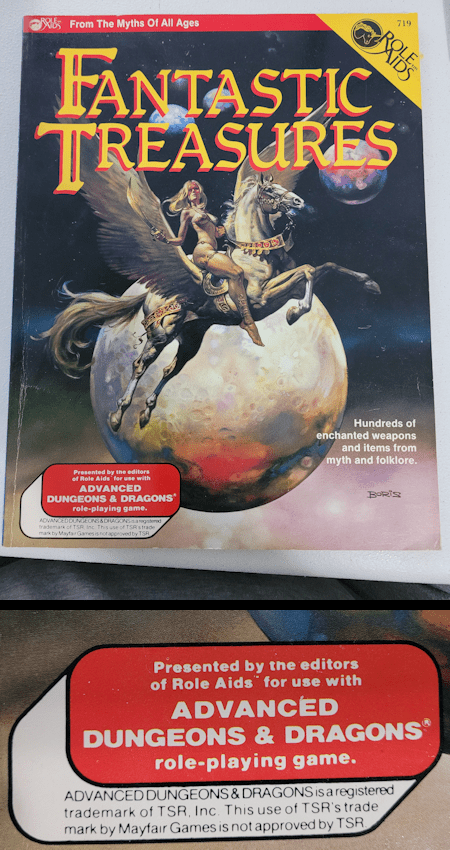
There were internal talks at TSR to offer up a licensing agreement with Mayfair for the Role Aids line, but Gary Gygax was outvoted, so no agreement was made initially. In 1984 an agreement of some sort between the parties must have taken place, although I can find no details of what this might have entailed. I say it must have happened because in 1993, TSR sued Mayfair Games for breach of that agreement with the Role Aids line. The court ruled that while many products were in violation, the line as a whole was not. Mayfair continued to publish material for Role Aids until TSR decided to purchase the rights to the line and ceased their production.
The law does not always have crystal clarity on issues of copyright and trademark. What does have clarity is a licensing agreement. Such legal frameworks spell out what can and cannot be used, how that material can and cannot be used, what rights each party has, and so on. So let’s answer the question: Is all this necessary?
Yes. The simple answer is yes. A licensing agreement shines a light on the issue and allows all parties to proceed with confidence knowing what they can do, what is expected of them, and so on. Having a standard framework, such as the one provided by the OGL + SRD + d20 System Trademark License (or the release of material under the Creative Commons framework) is a boon because this allows the primary entity (Wizards of the Coast) to enable others a set of rights in a way that does not require individual meetings and negotiations with the licensing entities—of which there are multitudes.
Without this structure, what we have is uncertainty. At what point in each of the Role Aids products did that product reach the line where it was flirting with copyright or trademark infringement? At what point did this or that product cross that line? Did Mayfair Games have perfectly legal products that never made it to production because of the uncertainty involved? How confident were they of each product’s legal standing? Each of these questions causes companies to pause, or even halt on production. If you can remove that doubt and have well defined rules, everyone benefits.
Still, there is a distinct difference between the letter of the law, and the spirit of the law.
#2. How Open is Too Open?
As discussed above, the various licenses for role-playing material are there to create clarity and grant access to artistic expression. The idea is that, if Wizards of the Coast has the Orc (for example) of Dungeons & Dragons’ SRD defined in a particular way, then other publishers can use the license under which that edition of the game was released and not have to redefine the Orc as something substantively different in their products. They can use all the stats, and even the description of the Orc as expressed in the SRD word for word in their own products.
They can also start with the baseline licensed artistic expression of the Orc and make modifications. They can add, adjust, and remove elements as they desire and call their new creation a Chaos Orc or what-have-you. This is all within the letter and spirit of the license and the law. Both the OGL and Creative Commons have language that indicates that when you do this, the new creation has to fall under the same open license: create a new Chaos Ogre and it will fall under the OGL or Creative Commons as something another publisher can use, or even modify to create something new (which would also fall under the same open license).
None of this is to say that you cannot create elements which are protected and cannot be used. For example, the SRD documents for all versions of Dungeons & Dragons do not include the artwork. Thus, the artwork that Wizards of the Coase uses to represent an Orc is not something another publisher can use. There are names of specific individuals in the Dungeons & Dragons lore that are not found in the SRD (e.g., Tasha) but are in the published books. If you want to use a spell that includes one of those names (e.g., Tasha’s Hideous Laughter), then you have to use the name of that spell as it is found in the SRD (e.g., Hideous Laughter). There are over 100 creatures in the Monster Manual that are copyrighted and trademarked by Wizards of the Coast (e.g., the Beholder) and so do not appear in the SRD (a full list can be found here). The same can be done with other publishers. Each publisher can present some information as open, and other information as closed. The spirit of this is for others to use, expand upon, and create in an environment where everyone gains access to more and more ideas.
The letter, however, can create issues when dealing with bad actors.
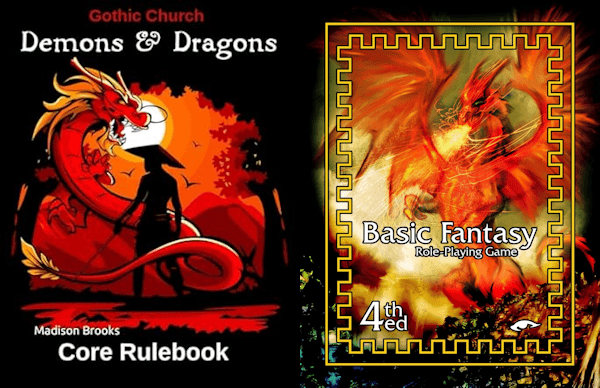
There is a game, Basic Fantasy, created by Chris Gonnerman. This is a distillation of the rules for Dungeons & Dragons to be more in line with how things were done back with the Basic and Expert sets (often called B/X). Initially, Mr. Gonnerman used the OGL and the SRD as their foundation. However, when Wizards of the Coast attempted to move to the OGL v1.1, the entire game was retooled to eliminate any and all elements that would tie it back to Wizards of the Coast. He re-released the game under Creative Commons as the 4th edition. More info about this game can be found here.
Basic Fantasy, in every iteration, has been free. If you want a digital copy, the various files are available on his website. If you want a print copy, these are available in several locations—the cost for each is set to the printing costs, just enough to ensure that Mr. Gonnerman does not lose money on each sale. These have been a heartfelt gift to the role-playing community.
There is a game, Demons & Dragons, which was sold by an individual named Madison Brooks under the imprint “Gothic Church.” This game is a word for word, font for font, page break for page break copy of Basic Fantasy 4e. The name was changed, the artwork was replaced (with freely available art online), and Mr. Gonnerman’s name and copyright were removed and replaced with Madison Brooks’ name and copyright.
Madison Brooks did not create anything. They opened a source file and replaced the artwork. They performed a search and replace on the name of the game. They removed the creator’s name and put in their own. This last point is an actual violation of the Creative Commons license (it would be under the OGL as well).
Mr. Gonnerman became aware of this game on March 5, 2024. He did some research and was eventually able to communicate with Madison Brooks online. Since those conversations, the credit for Mr. Gonnerman was reintroduced. Nothing within the main body of the text has been changed in any way. Madison Brooks sells this PDF for $20.
Actually, I should say sold. The community around Basic Fantasy let the outlets where this was available know that this was a carbon-copy of another game, and that the original is available for free. Those outlets have taken the game down. Madison Brooks and Gothic Church do have other games on their website, each of which is a carbon-copy of someone else’s work with the serial numbers filed off. Someone in those various communities needs to report them as well.
The truth be told, Madison Brooks was not in violation of the law when it comes to Basic Fantasty once the copyright attribution was reinstated. At that point, they were in complete compliance with the letter of the law. The moment Mr. Gonnerman released his work under an open license, his artistic expression of the B/X era rules were up for grabs.
This is most certainly not in compliance with the spirit of the law. Legally speaking, however, that does not matter.
Conclusions
Above this line, I have tried to be a reporter of news. I have tried to be fair and impartial. I hope I succeeded. Below this line, I want to talk about my feelings on this subject.
When I first found out about this, I was angry. I have had a few dealings and conversations with Mr. Gonnerman in the past, and I have found him to be a wonderful example of humanity. He is warm and open, funny and kind. He created Basic Fantasy and gave it away as a gift to the community. That community has rallied around him and written material to go with his game, from rules supplements to adventures, to… you name it.
The community he created was upset. In the end, by way of a conversation I had with him on this topic, they were far more upset than he was. His concern was that someone would buy a copy of that game and then later find out they had been duped. His YouTube channel has a couple of videos on this event.
From the beginnings of copyright law until today, things have always been complex. If you are a fan of Steve Jackson, you may know the story of how he lost the rights to The Fantasy Trip to someone who wanted them out of spite. Steve Jackson is a game designer, but he is also a copyright lawyer. So he waited and bided his time… then struck at the exact right moment to get those rights back. The Fantasy Trip is now one of the most popular lines over at Steve Jackson Games.
There are items that are still protected by copyright but are not available to people to obtain. That is why I purchased the rights to a favorite of mine, The Arcanum, and released a special 30th Anniversary Edition. I have, over the last several years, reached out to Wizards of the Coast in an attempt to gain clarity on the status of the rights for the Role Aids line (they acquired those rights when they purchased TSR). I wanted to know if those materials are ever going to be produced again, or if the rights are available for purchase. My conversations with Wizards of the Coast, be those via phone, email, or post, have always gotten a response… except where Role Aids is concerned. On that topic, I get nothing. Not sure why, but one can wonder if, perhaps, some wounds run deep.
I have written many things under the OGL. I had a series of setting books I wrote called Umbragia. All of that was written under the SRD for D&D3e. I don’t sell them anymore. I want to retool them for something not Dungeons & Dragons. I am working on Arcanum 4e which will use an engine I am also writing. So, soon… soon.
To wrap things up, I just want to say that open gaming is a godsend! So much material that I have been able to purchase and to write would not have been possible without it. To see anyone violate the spirit of open gaming—be that Wizards of the Coast with the OGL v1.1, or Madison Brooks’ attempt to defraud their customers—is going to get under my skin. I will forever be irked by those that can focus on the letter of the law at the expense of the spirit.


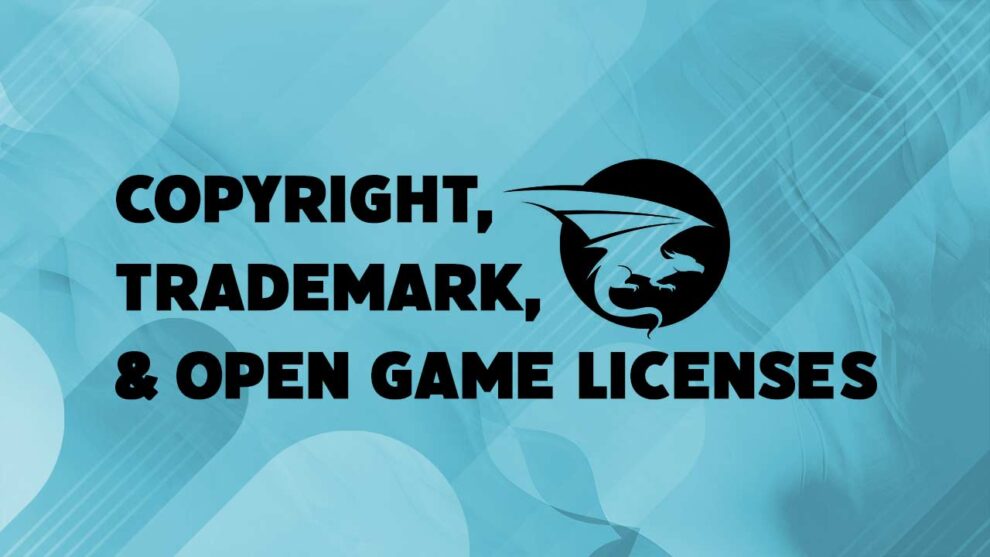
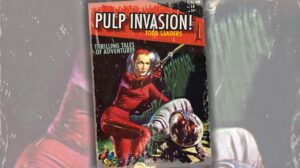
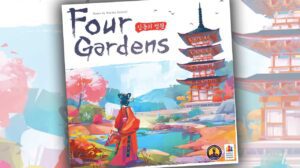
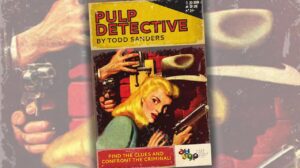





Add Comment